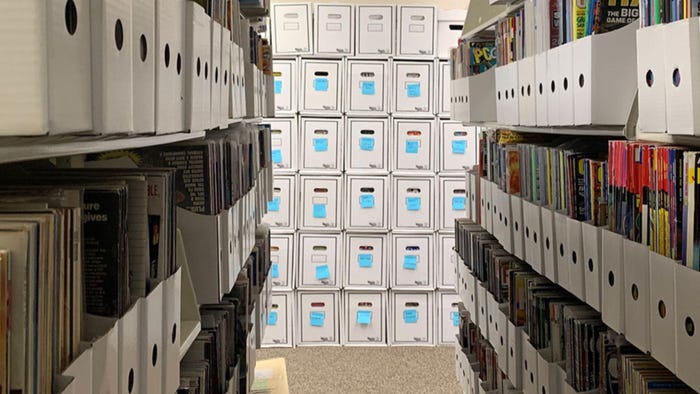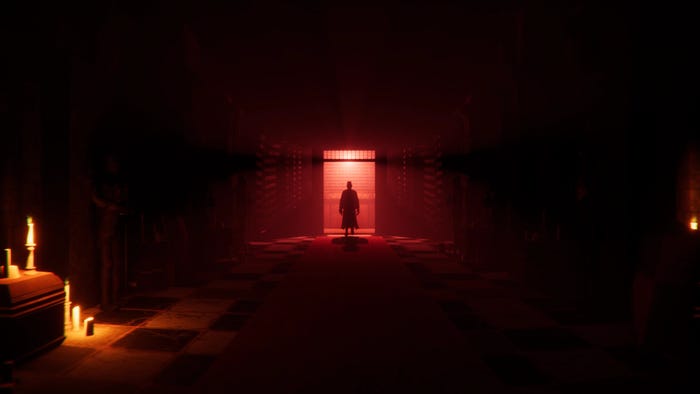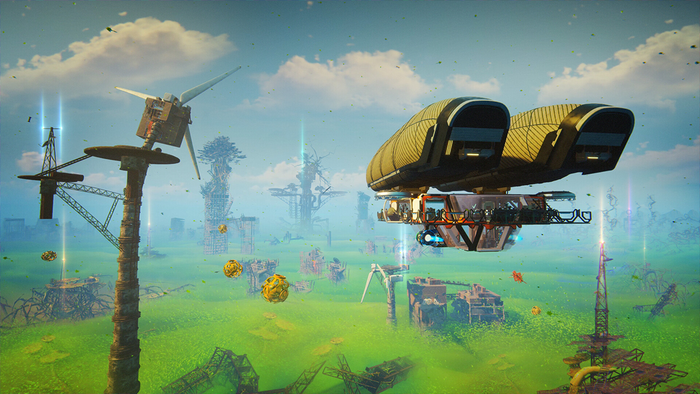Continuing Gamasutra’s ‘Road to the IGF’ feature, we talk to Reflexive Entertainment's Simon Hallam about the developer's IGF 2008 Technical Excellence Award finalist Axiom Overdrive, wh
December 4, 2007

Author: by Staff
Continuing Gamasutra’s ‘Road to the IGF’ feature, we talk to Reflexive Entertainment's Simon Hallam about the developer's IGF 2008 Technical Excellence Award finalist Axiom Overdrive, which, he says, uses physics-based play to "get people physically in tune with what they are doing on screen." The latest title from the team that created original Xbox Live/PC title Wik: Fable of Souls, creative director, producer, designer and programmer Hallam says Axiom was inspired heavily by the 8-bit classic Thrust, and uses its ship-grapple-mass combination to give the player "the kinesthetic sense that you could really feel the weight of the object and how it interacted with the ship." The title was one of the recently announced official finalists in the IGF's Technical Excellence category, ahead of the festival's Wednesday, February 20th 2008 ceremony. What kind of background do you have in the game industry or in making games? The entire Axiom Overdrive team is comprised of 12 very talented individuals, all with greatly varying levels of game development experience. There are some funny caricatures and a little info on each team member on the game's website. I personally have been developing games professionally since 1988, when I started working for Rare in England, we focused on the 8-bit NES and custom arcade hardware at the time. The Axiom team's lead designer and lead artist Tony Barnes has been developing games professionally since 1985 (he's slightly younger than me, but just those few extra years in the biz have made him infinitely more crusty and jaded than I could ever be.) Our lead programmer Lee Cooper took a more scholarly approach, culminating in receiving a PhD in Computer Graphics in 1998. What motivated you to make Axiom Overdrive? During the development of Wik: Fable of Souls we really fell in love with the kinesthetic feel of swinging the main character around by his super long tongue. During usability testing we noticed that many people would physically move around as Wik moved on screen, leaning left to right as he swung and latched around the place. We wanted to explore more game play mechanics that would get people physically in tune with what they were doing on screen. We put together a one day quick prototype game which was based on fond memories of an 8-bit classic game called Thrust. In the prototype, a small ship would fly around which could pick up heavy objects using a simple grapple arm mechanism. The ship-grapple-mass combination gave the player the kinesthetic sense that you could really feel the weight of the object and how it interacted with the ship. Several people in the office got addicted to the prototype and you could see them physically moving in their seat as they flew the ship around. After brainstorming different ways we could utilize this core mechanic, we figured that the combination of an incredibly simple and intuitive control mechanism, a richly dynamic physics simulation, and an accessible game setting could lead us to a really fun and innovative game, with that we began development of what would become Axiom Overdrive. Where did you draw inspiration from in its design and implementation? Mousetrap (the board game). Rube Goldberg machines. 8-bit game Thrust. Wik: Fable of Souls (what a great game!) What sort of development tools have you been using in the production of Axiom? Axiom has been developed using our proprietary development environment called ThePropEngine, which was originally developed for Wik and now boasts many new features. We added a 3D graphics pipeline with real time per pixel lighting, including bump mapping, gloss maps, displacement maps, and unlimited lights. Our background environments are generated algorithmically to reduce the size of the game download. We incorporated ODE to simulate realistic physical interactions, and our own contact determination system for arbitrary polygons (including non-convex). What do you think the most interesting element of the game is? The kinesthetic feedback you get while playing. When you are slinging objects around with the grapple, or bashing your way through blast doors, or just flying around at high speeds, everything in the game feels very satisfying. How long has Reflexive been developing Axiom, and what has the process been like? Reflexive started developing the game in March 2006. The process has been long and expensive, but we really believe in the concept, so we keep pressing on. It took us a long time to find a style and direction for the art, it wasn't until we got Tony and co-lead artist Peter Han on board that the art really found its feet, but they quickly turned things around and the game looks more beautiful each day. If you had to rewind to the start of the project, is there anything that you'd do differently? Absolutely! I allowed the artistic effort to flounder early on, and for a while we tried to solve that by fleshing out the back story for the game. I hoped that developing characters, telling the story of where they are, and how they interact with their world as well as one another would inspire the projects art crew. Unfortunately this story development process took the game in the wrong direction for way too long. The heart and soul of this game centers around the feeling of connection you have to the physical objects you are directly manipulating via the physical simulation, and has nothing to do with the motivations of various alien races interacting with one another. It took a long time to recover from that and get the game back on track, fully centered around the core play mechanic once again. I would have hired all the people we didn't have at the start of the project who are on it now much earlier. I also would have pushed away the people who are no longer on the project much earlier, they have since been working on their own games, and are very happy about that. It is not very productive and a waste of talent to ask people to work on a game that they are not passionate about. What are your thoughts on the state of independent game development, and are any other independent games out now that you admire? Making independent games is hard, staying independent is hard. "The Man" has many different guises, and you need a great deal of strength to stay the course and see your artistic vision through to the end. I admire everybody who has the passion to realize their dream of independence. You have 30 seconds left to live and you must tell the game business something very important. What is it? Work on the projects that excite you. The passion that you feel for our craft shows up in the games that we release, if it is not there, people can tell. Large publishers, large developers, large projects, really don't care about *you*. It doesn't matter how many hours a day you work, or how much you sacrifice to meet deadlines, when all is said and done it's about the numbers, and you will be dropped like a stone if it suits the suits.
You May Also Like







